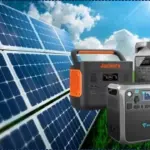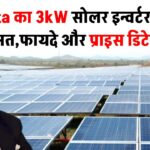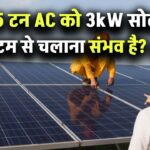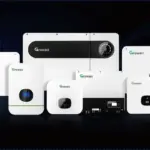
Solar energy is becoming one of the most popular ways to power homes and businesses across the United States. And in 2025, the demand for solar panels made in America has never been higher. Thanks to new federal incentives, environmental concerns, and a push for domestic manufacturing, more people are now looking for the best American-made solar panels that combine top-tier performance with eco-conscious production.
In this in-depth guide, we’ll explore the leading solar panel manufacturers based in the U.S., ranked and reviewed for their efficiency, production capacity, reliability, and sustainability. Whether you’re a homeowner, installer, or industry professional, this article will help you make an informed decision backed by data and expert insights.
Also Check: The Real Solar Power of the USA: You Won’t Believe How Much Energy We Generate!
Why American-Made Solar Panels Matter in 2025
Over the past few years, interest in domestic solar production has skyrocketed. Why? Because buying American-made solar panels supports local jobs, reduces dependence on foreign supply chains, and often ensures better compliance with ethical and environmental standards.
The Inflation Reduction Act (IRA) of 2022 supercharged this movement by offering incentives for U.S.-based solar manufacturing and deployment. As a result, companies like First Solar, Qcells, and Canadian Solar have ramped up their American production facilities, making it easier than ever to go green and buy local.
In addition, solar projects using American-made panels may be eligible for enhanced tax credits, particularly those adhering to “domestic content” requirements under the IRA. This makes American panels not just patriotic but financially practical.
Top 5 Best Solar Panels Made in the USA (2025 Rankings)
1. First Solar – Best Overall
- Headquarters: Tempe, Arizona
- Factories: Ohio, Alabama
- Type: Thin-Film (Cadmium Telluride)
- Capacity: 10.7 GW
First Solar stands at the forefront of American solar innovation. Their thin-film panels are ideal for utility-scale projects, offering strong performance in high-temperature conditions. With a vertically integrated supply chain and a robust recycling program, First Solar also leads the way in sustainability.
“First Solar is one of the few manufacturers with a closed-loop recycling system, reusing up to 90% of panel materials.”
2. Qcells – Best for Residential Use
- Headquarters: Seoul, South Korea (U.S. operations in Georgia)
- Type: Monocrystalline Silicon
- Capacity: 8.4 GW
Despite being owned by Hanwha Group of South Korea, Qcells manufactures many of its residential panels in Dalton, Georgia. Their panels are known for high efficiency and reliable warranties, making them a top choice for American homeowners.
“Qcells runs the largest solar manufacturing facility in the Western Hemisphere.”
3. Canadian Solar (U.S. Operations)
- Headquarters: Guelph, Ontario, Canada
- U.S. Factory: Texas
- Type: Monocrystalline Silicon
- Capacity: 5 GW
Canadian Solar, though based in Canada, now operates a massive plant in Texas, contributing significantly to the U.S. market. Their modules are affordable, efficient, and widely used in residential installations.
4. Illuminate USA (LONGi & Invenergy JV)
- Location: Ohio
- Capacity: 5 GW
Illuminate USA is a new but influential player, formed through a joint venture between Invenergy and Chinese giant LONGi Solar. Their state-of-the-art facility focuses on quality monocrystalline panels.
5. T1 Energy (Trina Solar-Freyr USA)
- Location: Texas
- Capacity: 5 GW
Originally launched by Trina Solar, this facility is now operated by Norwegian battery manufacturer Freyr, producing high-quality modules for commercial and residential use.
Also Check: 2kW Solar Setup? Here’s Why It Might Be the Biggest Mistake You Make for Your Home
Other Notable American Solar Panel Brands
Mission Solar
- Location: San Antonio, Texas
- Offers robust durability, ideal for extreme weather conditions
- Certified for high wind and hail resistance
Silfab Solar
- Location: Washington State
- Known for premium residential panels with consistent performance
- Offers sleek all-black panels favored in modern home designs
Heliene
- Partnerships: Suniva, Corning
- Producing modules with up to 66% American-made content
- Participates in U.S. government procurement programs
SunPower
- Known For: High-efficiency Maxeon cell technology
- Made in USA Components: Assembly in California; supply chain partially domestic
- Panels reach efficiency levels above 22%, ideal for limited roof space
What to Look for When Choosing American-Made Solar Panels
1. Certifications
Make sure the panel brand is certified by:
- UL (Underwriters Laboratories)
- IEC (International Electrotechnical Commission)
- Energy Star
- EPEAT (for government projects)
2. Warranty & Efficiency
Look for:
- Product Warranty: 10 to 25 years
- Performance Warranty: Guarantees output over time
- Efficiency Rating: Typically 18% to 22%
3. Installation & Support
Consider brands that offer strong post-installation support and integration with local installers. Check reviews and installer networks available in your area.
4. Sustainability Practices
Eco-conscious buyers should prioritize companies with:
- Recycling Programs (like First Solar)
- Low Carbon Footprint manufacturing
- Transparency in sourcing materials
5. Eligibility for Incentives
To maximize ROI, choose solar panels that qualify for:
- Federal tax credit (ITC)
- State incentives
- Domestic content bonus under the IRA
(FAQs)
1. Are American-made solar panels more expensive?
They can be slightly more expensive upfront, but federal tax credits and rebates often offset the difference.
2. Do U.S. panels perform as well as imports?
Yes. Many American brands like First Solar and Qcells offer comparable or better efficiency and durability.
3. How can I verify where my solar panels are made?
Check the product data sheet or contact the manufacturer directly. You can also request panels certified under the Buy American Act.
4. What incentives are available in 2025?
Homeowners can benefit from the 30% federal solar tax credit, plus additional state and utility-based rebates. Businesses may qualify for accelerated depreciation and domestic content bonuses.
Also Check: Still Getting Huge Electric Bills With Solar? This Common Mistake Is Costing You Hundreds








